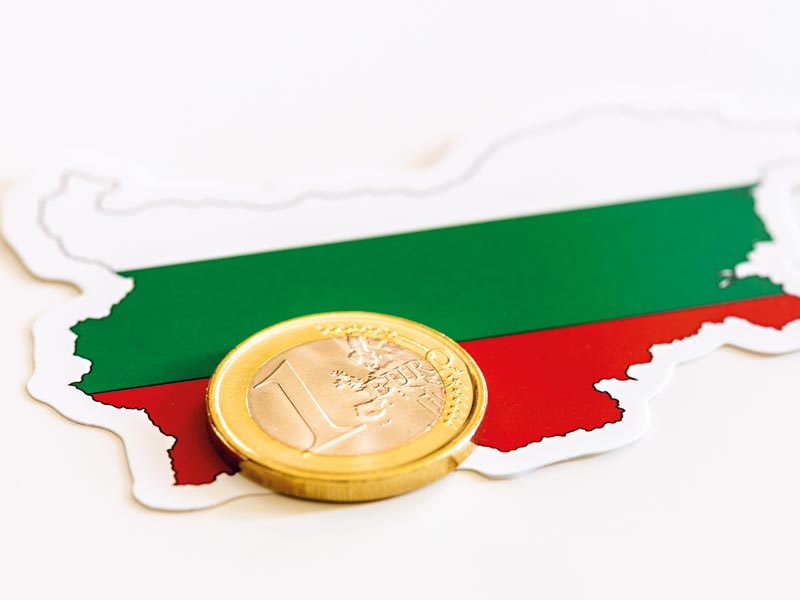
Top 5
This year we are in very good financial health – the banking system in Bulgaria is stable, liquid, very well capitalised and with decreasing levels of bad loans, and all its indicators are above the European average. The banking sector in Bulgaria is among the most prepared for full euro area membership. Bulgaria now has a functioning parliament and its economic indicators are better than the forecast at the end of 2022. The adoption of the package of laws for the Recovery and Resilience Plan is of key importance, so the 49th Parliament’s legislative programme clearly set these laws as a key priority, along with the country’s accession to the Schengen area and the eurozone. We should pay particular attention to the opportunities that the Recovery and Resilience Plan, which will provide our country with more than €6bn in grant funding, presented to Bulgaria.
The big challenge will be to allocate these funds adequately so as to achieve the desired effect of accelerating the recovery of the Bulgarian economy with a focus on a greener and cleaner future. The Recovery Plan turns the challenges we face into opportunities, not only by supporting recovery, but also by investing in our future: the Green Deal and digitalisation will boost jobs and growth, the sustainability of our society and the well-being of our environment.
Our accession to the euro area and to the second most used currency in the world is also a long-anticipated process, which positively affects our economy and drives the acceleration of reforms, increasing welfare, and reaching European standards of living. Thanks to the euro, it will be easier, cheaper and safer for companies to buy and sell in the common European economic space and trade with the rest of the world.
The biggest advantage of the euro is the minimisation of currency risk for the economy. The banks are ready, we have established internal communication with experts who follow a plan for the introduction of the euro and we are confident that Bulgaria’s accession to the single European currency will bring many benefits to the customers. Our economy will rapidly become a more business-friendly environment.
On a business bearing
Banks are a trusted and supportive partner precisely for the development of this business environment and this year our efforts will be focused in this direction. We will continue to finance valuable projects in key sectors of the economy on the best possible terms, and despite the reversal of the interest rate cycle, we will strive to minimise the effects on our customers. The global process of raising interest rates is having an impact, albeit at a slower pace, on interest rates in Bulgaria, which is also an argument for maintaining the level of the countercyclical capital buffer for bank lending at two percent in the second quarter of 2024. The countercyclical capital buffer of two percent comes into force on October 1, 2023, and is intended to strengthen the resilience of the banking system.

We can therefore expect a smooth transition to higher interest rates, in line with the consistently conservative interest rate policy being set by central banks. In Bulgaria, in view of the specificities of the basis for setting retail interest rates, the dynamics of the deposit market, the high liquidity and the tightening of interest rate policy will be implemented more moderately.
The banking sector is being digitised at an accelerated pace. Innovation and digitalisation are an integral part of the banking community’s strategy and an important part of our success in recent years. Innovation and digital transformation are key to the relationship between consumers and financial institutions. With consumer expectations rising, the banking services and products sector is evolving. Our strategy involves digitising every element of the business – products, services, different channels, risk management.
An integral and very important part of the sector’s development strategy is following the principles of good environmental, social and corporate governance, which are becoming an increasingly important part of any large organisation’s business model. The banking sector can help prepare our economy for a greener future. To this end, banks need to continue to improve their cost efficiency and shift the focus of their business models towards sustainability and longer-term value creation. This requires even greater progress in incorporating climate and environmental risks into our existing risk management strategies and processes.
The consolidation of the sector that we are seeing is part of the sustainable transformation of business thanks to the greater opportunities that market leaders have to invest in innovative technologies, in process optimisation and well-trained professional staff. This is another of the main challenges for the banking sector globally, one that will affect both the global economy and the Bulgarian market over the next few years. It is a challenge that Bulgaria finds itself well prepared to meet.


